How three months in the Highlands helped me face my grief
When Sally Coffey’s brother died, she took a solo trip into the Highlands – and found new perspective
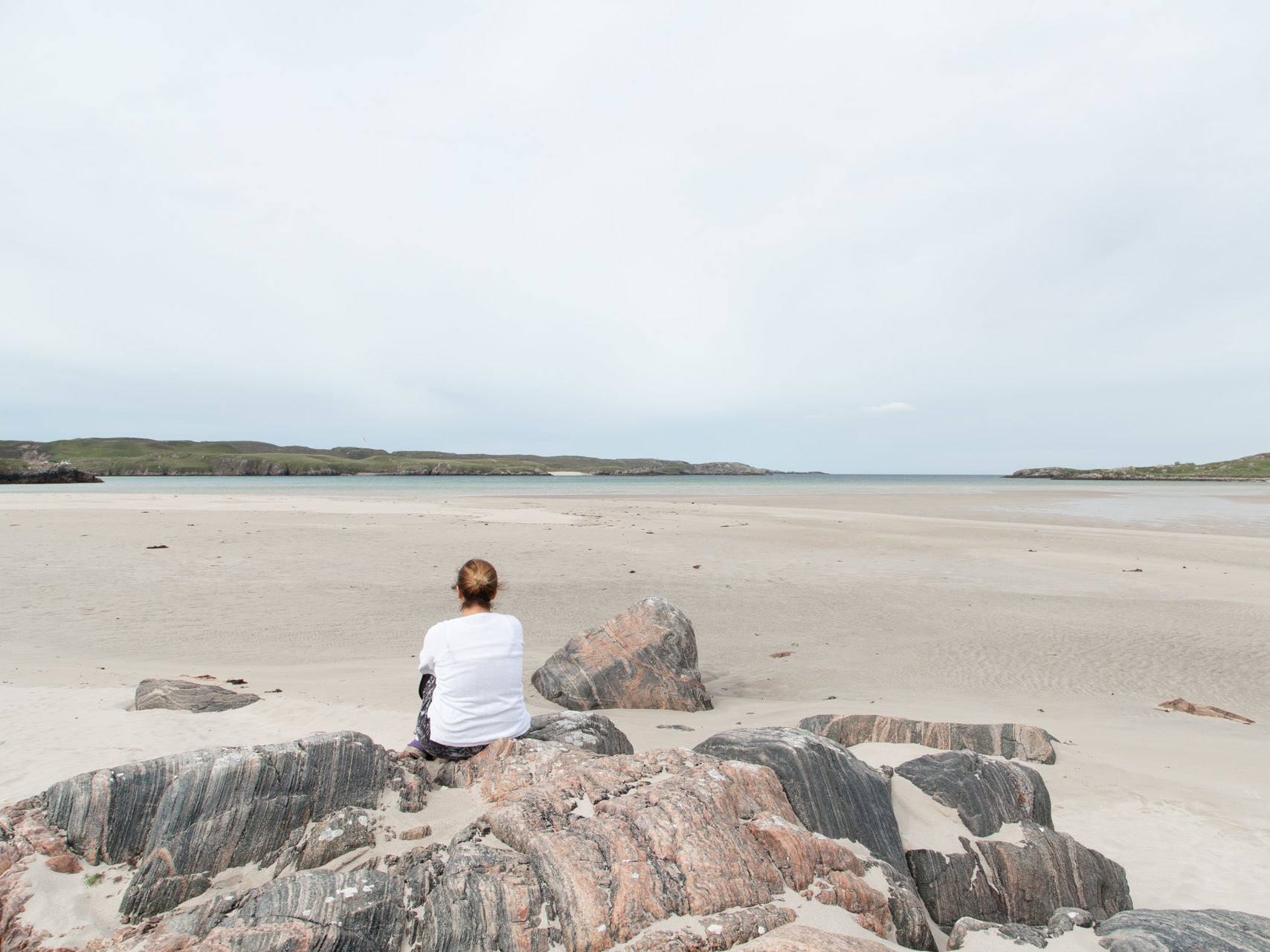
Your support helps us to tell the story
From reproductive rights to climate change to Big Tech, The Independent is on the ground when the story is developing. Whether it's investigating the financials of Elon Musk's pro-Trump PAC or producing our latest documentary, 'The A Word', which shines a light on the American women fighting for reproductive rights, we know how important it is to parse out the facts from the messaging.
At such a critical moment in US history, we need reporters on the ground. Your donation allows us to keep sending journalists to speak to both sides of the story.
The Independent is trusted by Americans across the entire political spectrum. And unlike many other quality news outlets, we choose not to lock Americans out of our reporting and analysis with paywalls. We believe quality journalism should be available to everyone, paid for by those who can afford it.
Your support makes all the difference.Standing at the top of Dun I, Iona’s highest point, and peering down over the famous abbey and across to Mull’s west coast as the wind whirred around my face, I felt alive in a way I hadn’t for months.
“You should have come here, Eoin,” I said out loud. As though that would have solved everything. My brother had died just over a year before, a not altogether unpreventable death. Only now, with a bit of time on my own and some physical space, was I starting to process it.
At first my brother’s death had been a shock. So much so that I thought I was having a stroke the morning before the funeral: I couldn’t feel my left arm and everything seemed so surreal it was as though I was watching events unfold on TV.
I had moments of panicked tears, sometimes at the most unexpected times, or more expectedly when I drank too much, but then after a few months my grief crept inside me, burrowing somewhere so impenetrable that eventually I felt nothing.
My head became a cloud of fog. I was forgetful and constantly distracted – muddled and confused. Numb. There was interference in my head like a badly tuned TV – and no matter how hard I tried, I was unable to switch my emotions on.
Besides, there was too much to do. As editor of a magazine and mum to two small kids, there was just no space in my life for my grief. I had to cope. Life must go on. And it did.
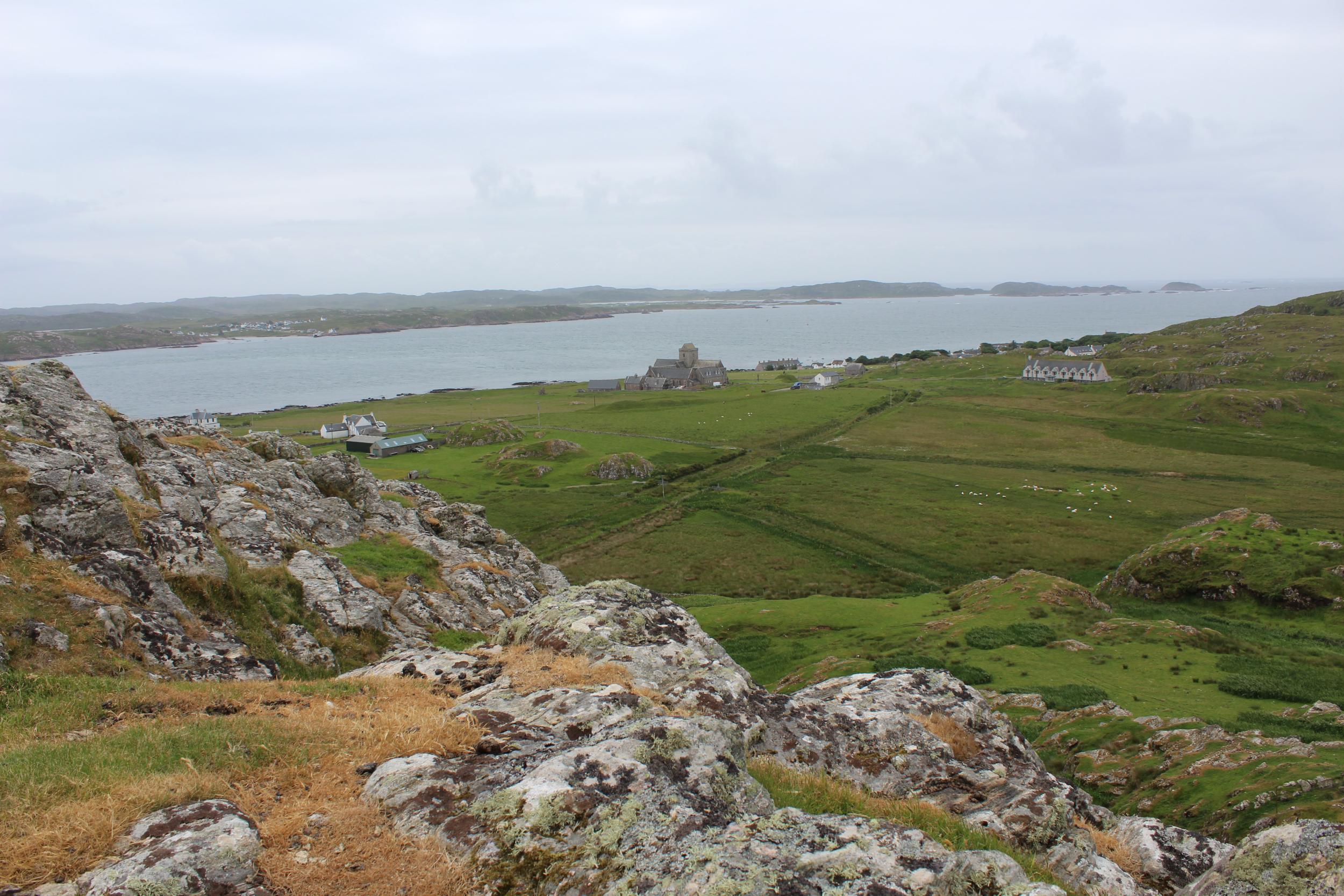
But as I loaded myself with ever more tasks, anxiety took hold and panic attacks became a regular occurrence. Cognitive behaviour therapy helped me manage the worst of it but I knew something had to change: so I did the only thing I felt I could. I quit my job and took an opportunity to write a book, which meant a lot of travel, in Scotland.
Rather than one big trip, I chose to embark on lots of smaller expeditions over a series of months, but I yearned for the sense of space and freedom that Scotland, and in particular the Highlands, offered, even for short spells of time.
As the train left Glasgow on my first solo trip into the Highlands, clattering along the West Highland Line, through Loch Lomond and The Trossachs National Park all the way to Oban, I was tentative. Would I be able to ride the rapids of my emotions or was I about to become submerged?
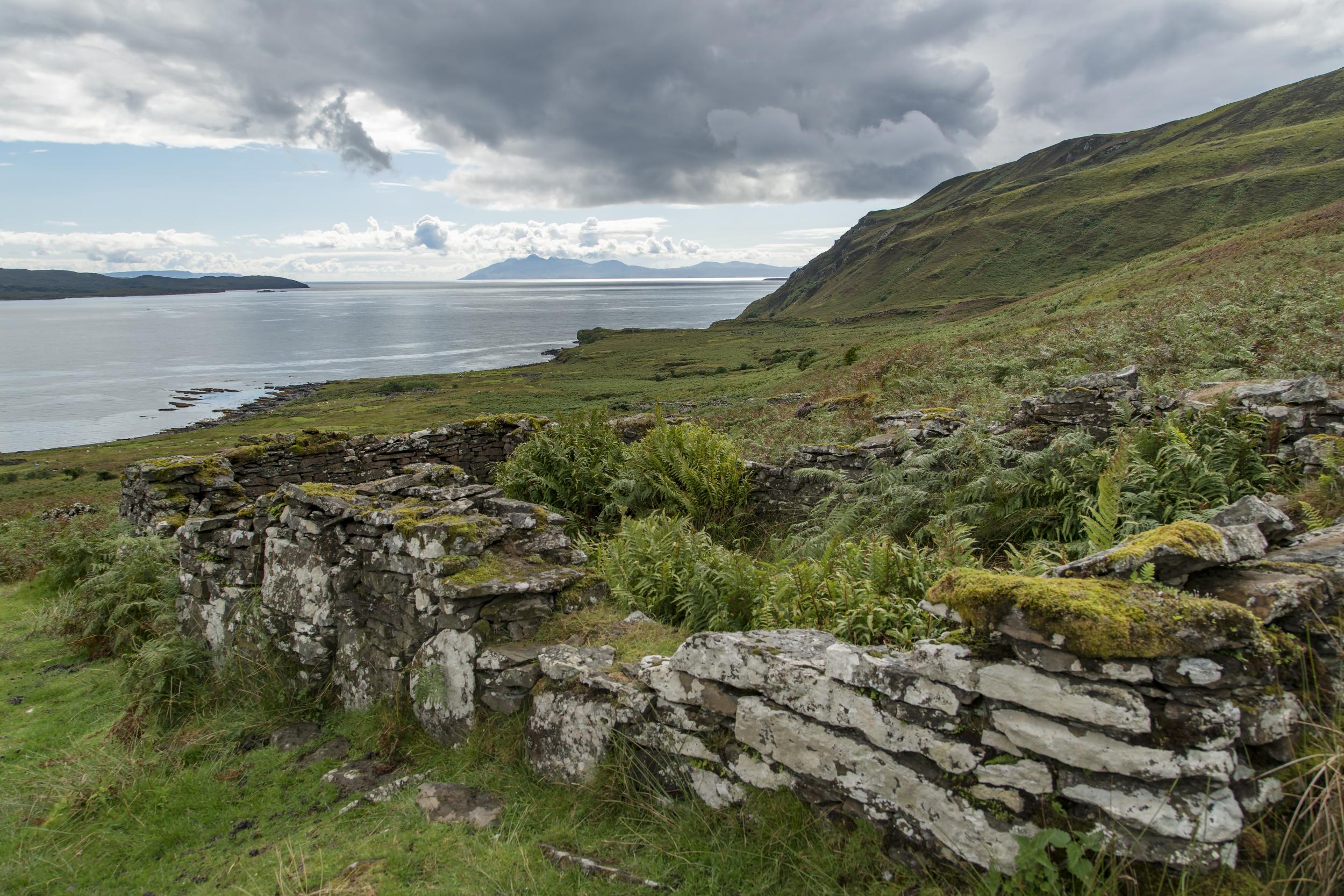
Until this point I’d kept myself afloat by clinging to small moments of joy when I could – the sound of my toddler giggling, the animated stories and odd observances of my six-year-old, the simple pleasure of cuddling my sons, breathing in their familiar scent and thanking God that at least I had them (my Catholic upbringing, though long since rejected, had some use).
Now, without my children to cheer me or distract me, I was rudderless, not knowing which way the tide would take me.
At first it was just nice to sit in silence and gaze out the window as we passed along the shorelines of fjord-like lochs guarded by giant mountains, which occasionally disappeared behind banks of trees before re-emerging again, bold and lush.
The views were spectacular, epic even, and I began to feel humbled. If before I felt like my world was caving in, now I was being shown that the world was so much more than my short-lived experience.
Over the next few days I immersed myself in my surroundings, paying close attention to every sight, smell and feeling – from the pinch of cold air on my cheeks as I trekked up hill paths, to the reassuring regularity with which the waves seemed to kiss the sand on a sheltered beach.
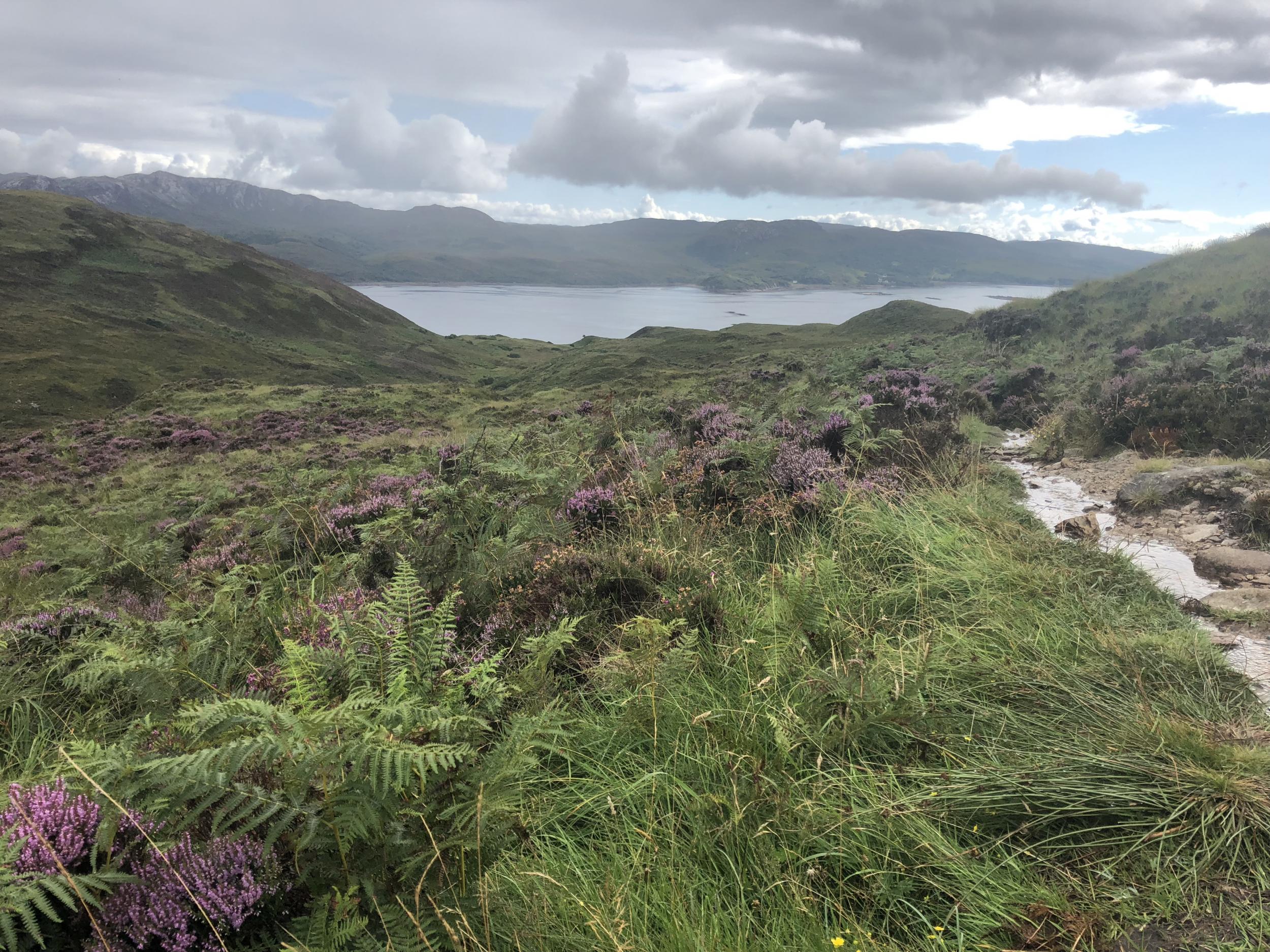
I walked and I spoke to my brother. Not in my head but out loud, like he was there beside me, even though we hadn’t done anything like countryside ambling together for years, if not decades. Nevertheless, with no one there to judge or misinterpret, I got the chance to say some of the things that had been clogging up my head, and by doing so I felt less bunged up.
Over the next few months, on numerous visits, I surrendered myself to the raw beauty of the Highlands. I behaved in a way that would have been unseemly at home, but here it was apt. If I sat with tears streaming down my face on a packed commuter train, fellow passengers would feel uncomfortable, but here with just mountains and sea for company, I thought nothing of finding a pretty spot for a good cry.
I wasn’t always on my own on my Scottish travels either, sometimes I was with friends, sometimes my partner and kids, and at other times with strangers.
A week onboard a cruise along the Great Glen felt like rehab. I ate like I was at my granny’s house, I slept lots, I wrote, I breathed, I sat and thought. I realised I’d not given myself any space to think, to digest, to adjust.
Even when I was away with others, I found time to be on my own. I walked for hours to forgotten villages and I relished the peace – without the white noise of my day-to-day life, I could think more clearly and honestly.
Driving through Glencoe where mountains tower over you in all their bare-naked beauty, I felt as exposed as the craggy rock face above, but it was somehow OK. Unlike the mists clinging to the tips of the many munros I encountered, the clouds in my head were dissipating.
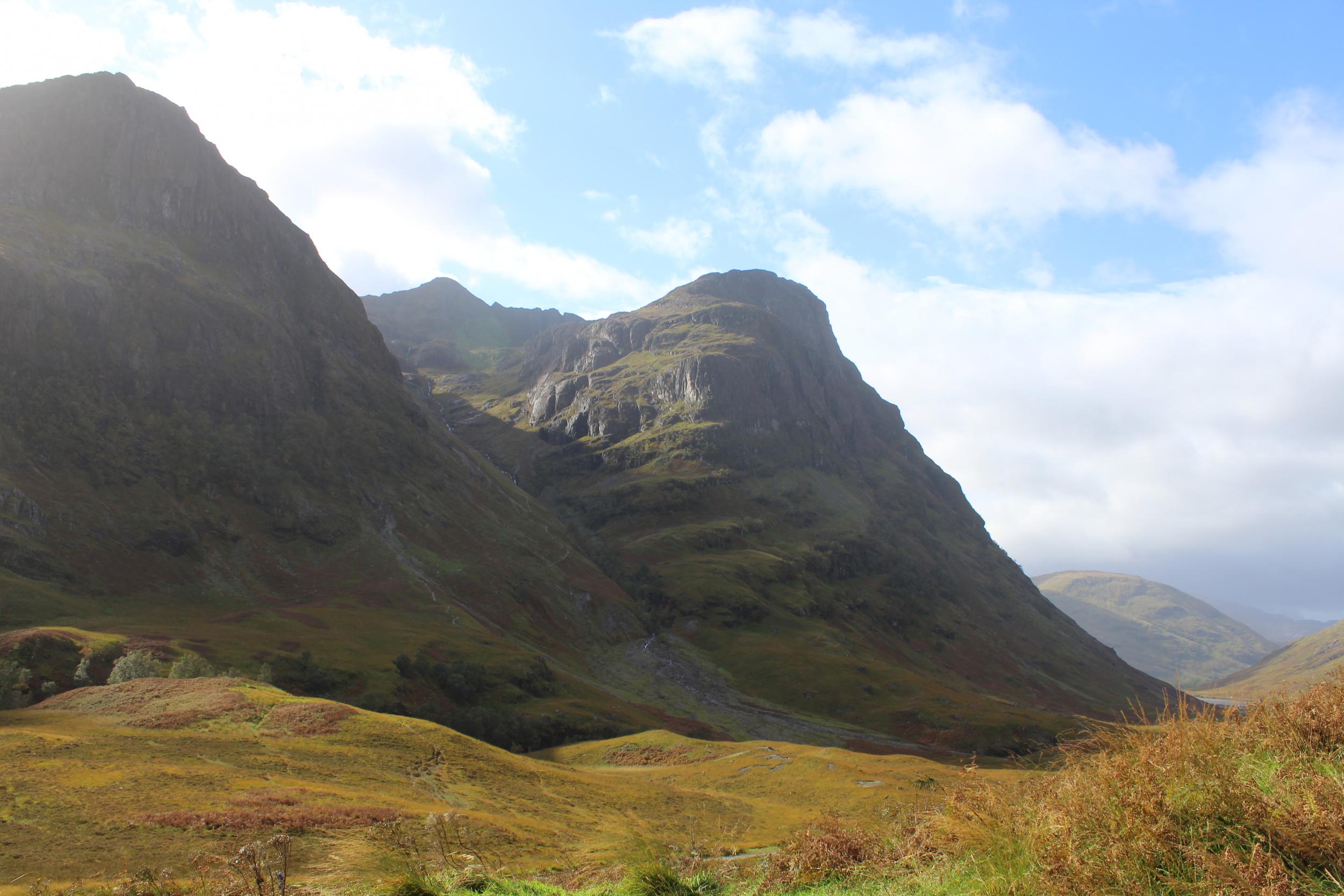
My partner even proposed when we were on the Isle of Skye, and though I know many brides-to-be burst into tears when they get a proposal, my outpouring came a few minutes later when my new fiancé walked off to play with the kids on an otherwise empty beach and I sat and told myself that it was OK to be happy, I didn’t have to stay sad forever.
And that’s not all, my travels taught me how to smile again – I took myself out of my comfort zone, squealed and shrieked as I drove round hairpin bends that I never would have attempted before. I made new friends, if only for the evening and a few drams, and even discovered a new love of adventure and the outdoors. I also learned that I’m rubbish at taking selfies, something that my brother would have rolled his eyes at, which only made my smirk even sillier.
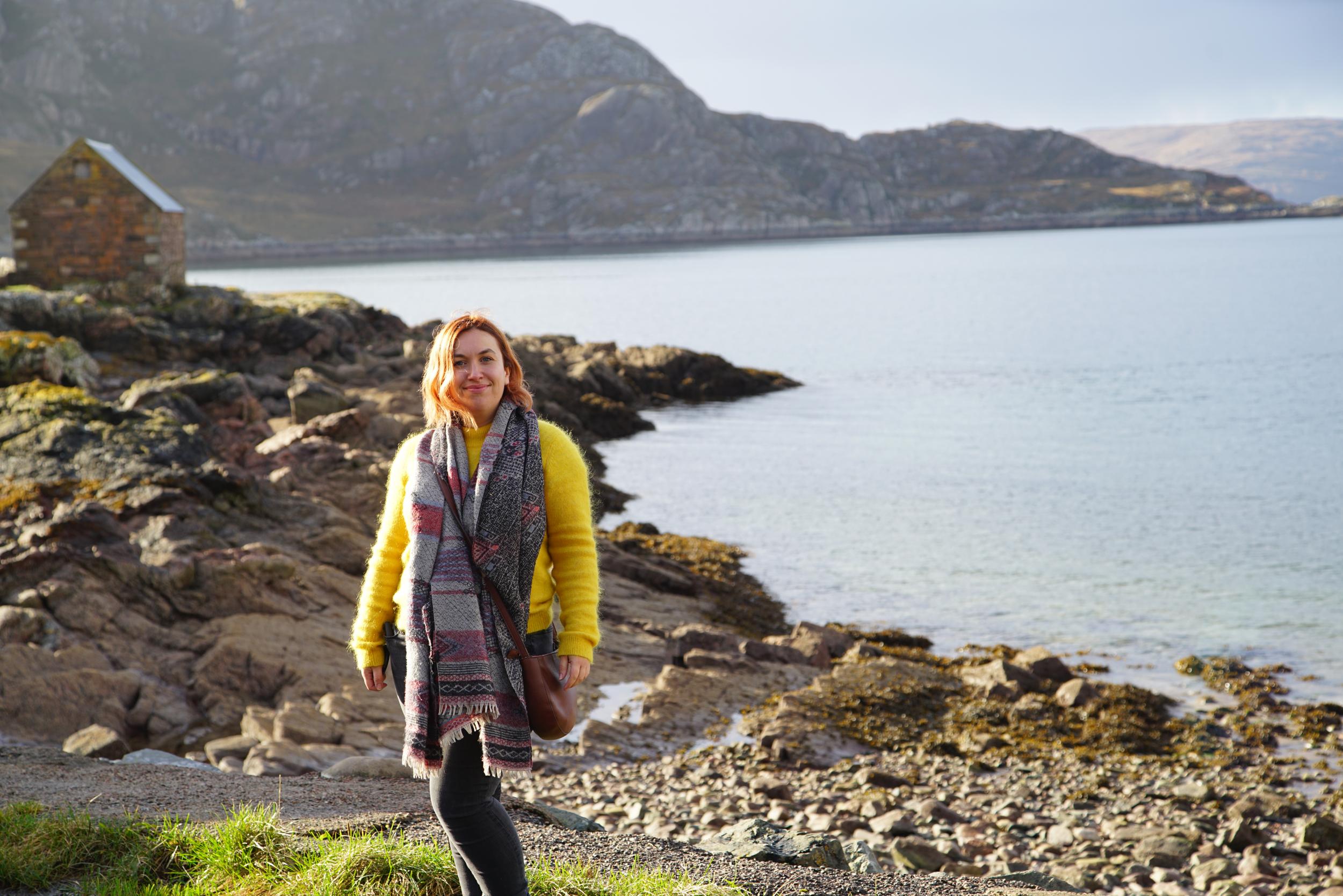
It’s not been easy opening up the door to my grief, and I am far from over my brother’s death; if anything, the past few months have shown me I probably never will be.
It’s a hard thing to accept that your life is continuing, blossoming, and bringing new perspectives and experiences when the life of someone who was once your ally, protector, mentor and most precious friend has stopped.
But I’ll learn to carry my grief like an extra child. I’ll nurture it, protect it and listen to it – and perhaps over time I’ll be ready to go for long stretches of time without it. And if life ever becomes too much again, I know just the place to go; besides, I’ll always have Eoin’s cynical and comical voice in my head to stop me from getting too morose.
A sort of travel sidekick, and I quite like the sound of that.
Join our commenting forum
Join thought-provoking conversations, follow other Independent readers and see their replies
Comments